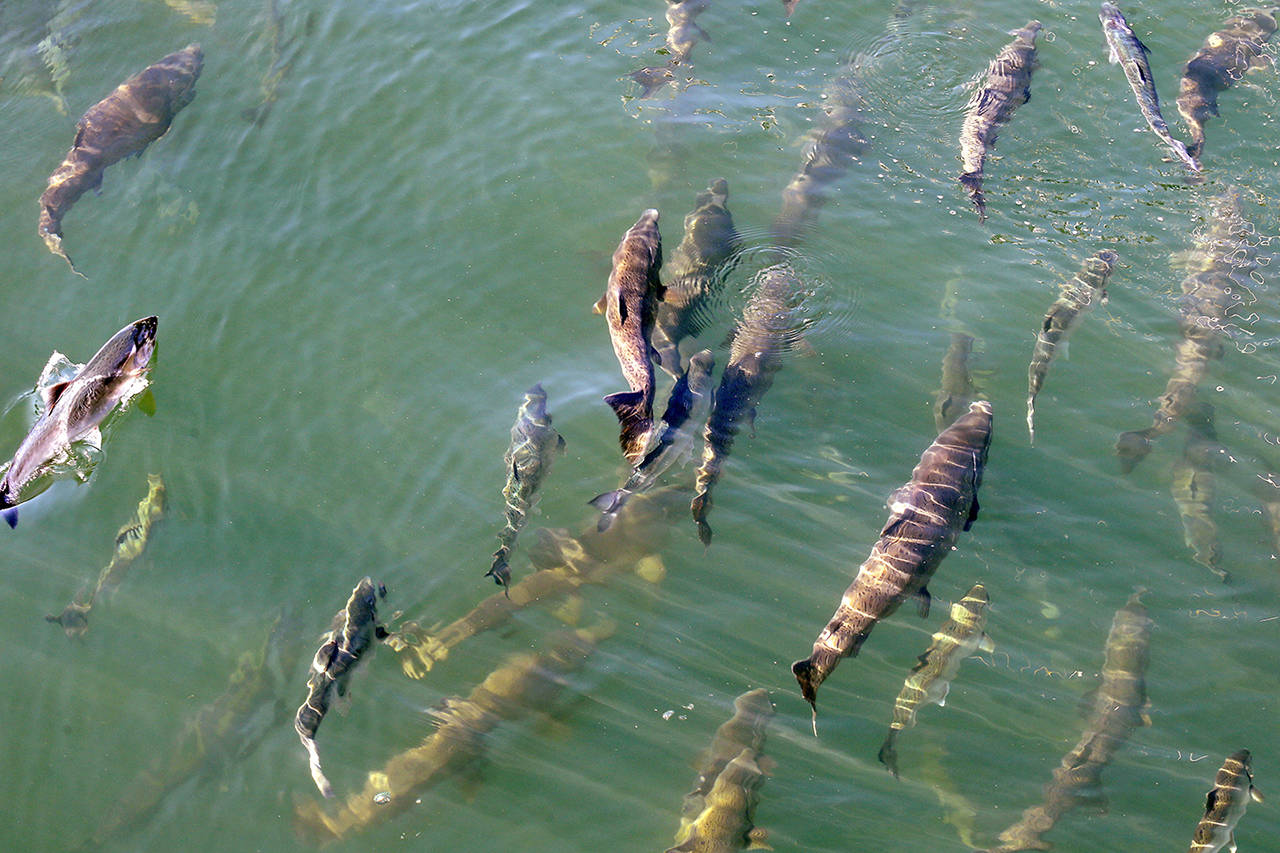By The Herald Editorial Board
Fewer of us participate in hunting and fishing than in decades past; that’s a trend seen at the state and national level, even as more of us take to the outdoors for hiking, birdwatching and wildlife viewing armed only with cameras or binoculars.
But while fish, fowl and the antlered crowd might individually breathe a sigh of relief, the resulting drop in the sale of hunting and fishing licenses means a loss of support for wildlife and habitat conservation work throughout the United States, and in Washington state in particular.
Only about 3 percent of the state’s population now hunts. Nearly 124,000 licenses for deer were sold to hunters in Washington state in 2013, with 33,657 deer harvested. By 2018, the number of deer hunters had dropped 12.5 percent to less than 109,000 licenses with 27,896 deer taken. At $45 for a deer license and $85 for a combined deer and elk license, the decline in hunters has meant a significant loss of revenue for the state and more specifically for the state Department of Fish and Wildlife.
Similarly, there’s been a decline in the number of those purchasing fishing and related licenses. In 2007, there were more than 845,000 anglers in the state, about 16 percent of the state’s residents. By 2017, the number of those fishing dropped to 759,000, about 12 percent of the population, according to WDFW figures cited in a 2018 Yakima Herald story.
The fish and wildlife agency took another hit earlier this summer when a special fishing license endorsement expired to fish for salmon and steelhead on the Columbia River, a $9 fee on top of the fishing license. That fee brought in about $3.3 million every two years to the agency.
Yet that drop in revenue from licenses and fees is only one reason why the state Department of Fish and Wildlife has made a special request of Gov. Jay Inslee and the state Legislature as they prepare supplemental budgets for consideration during the upcoming session that begins in January.
The agency is requesting a total of $26 million, reports the The Spokesman-Review, and would have to make heavy program and staffing cuts — as many as 100 employees — unless at least some of that request is honored. The loss of revenue from licenses and fees hasn’t kept pace with costs for managing those programs, but a one-time funding fix adopted by lawmakers in 2017 has expired and the department has been underfunded over the last decade following budget cuts made during the Great Recession.
Past attempts to increase fees and licenses have failed, so the agency is not planning to make that request of the Legislature this year, meaning revenue would have to come from the state’s general fund.
State lawmakers did approve $10 million in funding for the agency in 2017, with the requirement that the department undergo a performance audit and develop a long-term financing plan. The audit, according to the WDFW website, confirmed the budget shortfall and the growing gap between revenues and expenditures, and also new mandates that added to the agency’s costs without the necessary funding.
The principle of user fees makes perfect sense as a source of revenue for a range of programs; those most directly using a resource or program pay more to help support it. But it’s easier to tap a hunter or angler for a fee than it is for someone taking a pair of binoculars into the woods. Which means that as the numbers of those who hunt and fish wane, state residents as a whole will need to shoulder a larger share of the costs of managing state lands and waters to enhance and protect habitat and wildlife, which means increased allocations from the state’s general fund.
That work of habitat and wildlife conservation will become even more critical as the effects of climate change become more pronounced in the state and the Pacific Northwest.
The Department of Fish and Wildlife is tasked with preserving and protecting the state’s wildlife, fish and their habitats to sustain resources for recreational and commercial uses.
Lawmakers will have only a short 60-day session to address continuing issues with K-12 education funding, and now — following the passage of Initiative 976 — added pressure to address transportation funding shortfalls. But those priorities can’t come at the cost of ignoring the needs of the state’s public lands and wildlife resources.
Talk to us
> Give us your news tips.
> Send us a letter to the editor.
> More Herald contact information.

























